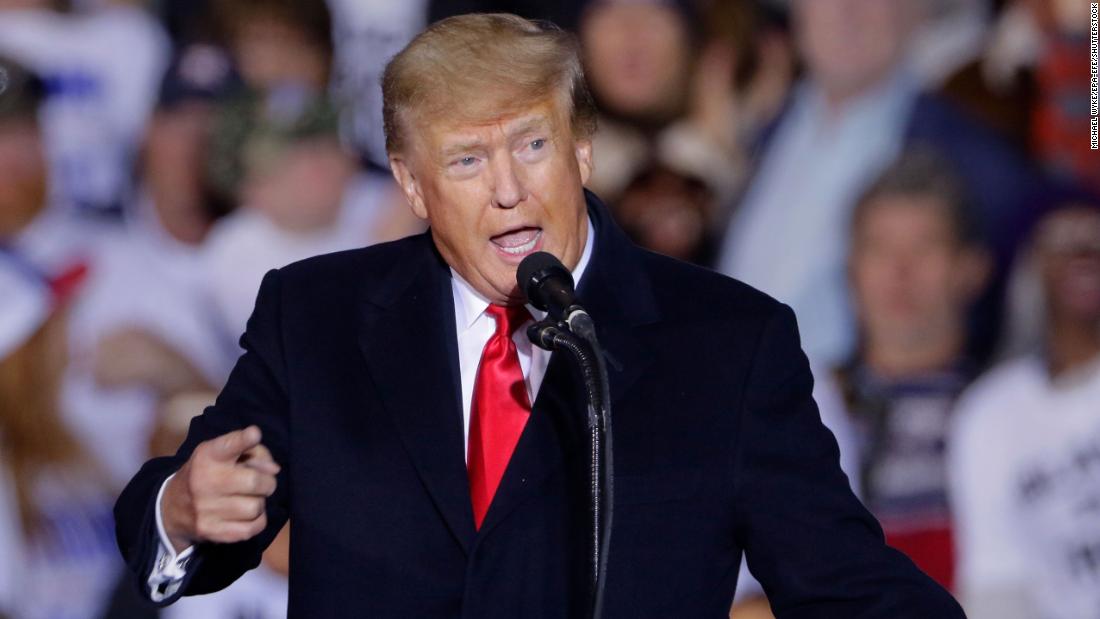The GOP is ever closer to the destination to which it has long been headed — the legitimization of violence as a form of political expression
The potentially irrevocable break with Trump boosted Republicans who despair at the party’s trashing of truth and democracy and occurred amid perhaps wishful whisperings among some strategists that the ex-President’s grip may be weakening. These could be the first shoots of a coming debate over whether Trump should be the party’s nominee for a third time, in 2024.
But Trump’s dark power is also playing out among a larger group — GOP lawmakers who disdain his strongman radicalism but are afraid to speak out against him because they think loyalty is the only way to save their political skins. The acquiescence of most Republicans has long enabled Trump’s assaults on the rule of law and shows little sign of hardening into opposition to the ex-President.
And a Republican triumph in midterm elections in November could seat a House majority dominated by Trump’s henchmen and women and give his extremism a new lease on power in the run up to the 2024 presidential contest.
A clear signal from the RNC to Trump
But appeasing Trump’s culture of violence is not limited to the RNC. In a continuing attempt to ignore the violent scenes, multiple Capitol Hill Republicans have whitewashed the truth of January 6. Many others have tried to obstruct the committee or mislead about its purpose. Trump critics like Utah Sen. Mitt Romney are ostracized by the ex-President’s partisans. Some who voted to impeach him are being drummed out of the party.
Trump’s capacity to intimidate is also underscored by the fact that even a frequent Republican critic of his behavior — Sen. Susan Collins of Maine — said that while it’s “not likely” she will support him if he’s the nominee in 2024, she cannot say for sure.
Pence’s thunderclap
Pence’s declarations that Trump’s demands were “un-American” and “wrong” and that he did his personal duty got most of the attention on Friday. But his comment about the implications of Trump’s continued anti-democratic behavior may have laid the battle lines for a future struggle inside the Republican Party itself.
“The truth is there’s more at stake than our party or our political fortunes,” he said. “If we lose faith in the Constitution, we won’t just lose elections — we’ll lose our country.”
Some might argue that Pence’s statement was woefully late, more than a year after he left office. And he has still not forcibly condemned the ex-President’s election lies and attacks on democracy. Plus, the ex-vice president abetted the lawlessness and anti-constitutional pyrotechnics during the twice-impeached former President’s term with his admiring loyalty. On NBC’s “Meet the Press” on Sunday, Pence’s ex-chief of staff Marc Short also tried to mitigate Pence’s political exposure by criticizing the House select committee.
While noting he didn’t see much “legitimate political discourse” when he was at Pence’s side at the Capitol on January 6 last year, he also attempted to draw fire away from the RNC resolution.
Is Trump’s grip slipping?
Still, there are at least signs of tentative resistance to Trump, albeit from Republican grandees rather than a new standard bearer with a future in the party who is willing to risk political apostasy.
But the ex-President still draws massive crowds. Any lessening of influence at the margins could be down to his comparative invisibility outside the bubble of conservative media. The fact that there is still such resistance to the truth about Trump’s coup attempt — fueled by aggressive GOP efforts to rewrite history — suggests that Trump’s power is enduring inside the party as he eyes a possible comeback. Millions of Trump voters believe he was cheated out of office and still see him as the antidote to their hatred of government elites and a sense that the country as they know it is being taken away by demographic, social and economic change.
Ever since he triggered a political earthquake with his campaign launch in 2015, Trump has crushed all resistance in the party — one reason why so many lawmakers are careful not to cross him now. Primary opponents in 2016 like Sens. Marco Rubio of Florida and Ted Cruz of Texas and New Jersey Gov. Chris Christie were squashed and co-opted by Trump. Critics like ex-Sen. Jeff Flake of Arizona, who retired, and now Cheney, who’s facing a Trump-backed primary challenger, and Kinzinger, who is not running for another term, effectively have had to choose between their democratic principles and their political careers.
While Trump’s ever more unhinged extremism could still destroy his comeback hopes, especially with a general election audience, events of the last few days show he remains the bedrock of the Republican Party.
![]()


